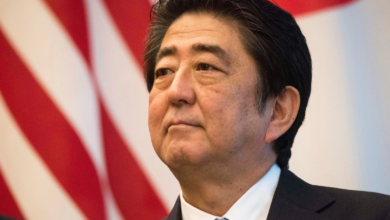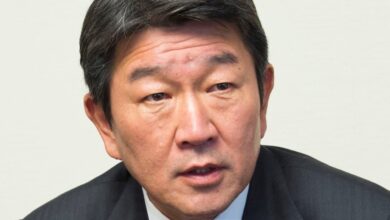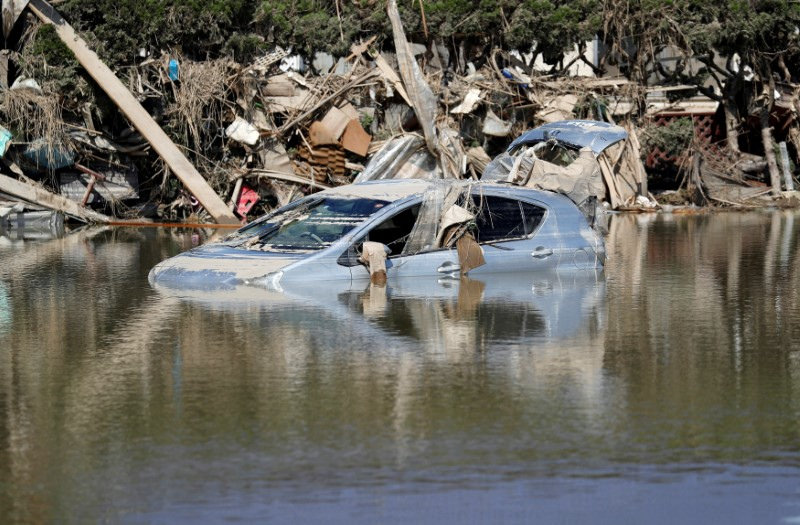TOKYO, Japan, Nov 15 – Caribbean Community (CARICOM) foreign ministers have hailed the one-day summit with their Japanese counterpart, Fumio Kishida as a success, and have welcomed Tokyo’s solidarity with the region on many global issues.
In a joint communiqué issued at the end of the Fourth Japan-CARICOM Ministerial-Level Conference, “The Foreign Ministers resolved to strengthen the bond between Japan and CARICOM member states and to cooperate in various areas related to three pillars, namely cooperation towards sustainable development including overcoming vulnerabilities particular to Small Island Developing States (SIDS); deepening and expanding bonds founded on exchanges and friendship and cooperation in addressing challenges confronting the international community”.
The regional ministers sought to underline the importance of expanding this measurement to include a vulnerability index and Kishida noted that Japan will give “utmost consideration to the concerns of CARICOM”.
The communiqué noted that Japan has also indicated that it would continue to extend its cooperation towards overcoming such vulnerabilities particular to CARICOM member states utilising Japanese technologies and expertise nurtured through its similar experience in the fields of disaster risk reduction, countermeasures against environmental degradation, climate change, energy, waste management and fisheries amongst others.
Jamaica’s Foreign Minister A.J. Nicholson speaking with the Caribbean Media Corporation’s Peter Richards (CMC) following bi-lateral talks with Kishida, said Japan has turned out to be an “extremely true and good friend of CARICOM”.
Kishida has reaffirmed Japan’s intention to actively engage in international discussions concerning vulnerabilities particular to small island developing states even as the CARICOM foreign ministers expressed their concerns during the bi lateral as well as the full ministerial meeting over the issue of graduation from concessionary funding based on the narrow measurement of gross domestic product (GDP).
Nicholson said Japan had developed expertise in disaster preparedness given the country’s own vulnerability to natural disasters and as a result, Jamaica and indeed the wider region, would like to benefit from such expertise.
“Noting that Japan and CARICOM face common challenges pertaining to natural disasters, the Foreign Ministers reaffirmed the importance of mainstreaming disaster risk reduction in development planning and international cooperation initiatives,” the communiqué noted.
The Caribbean foreign ministers also welcomed the decision by Tokyo to start a field survey in the area of renewable energy and energy efficiency, which they described as “one of the key sectors to overcome inherent vulnerabilities particular to CARICOM member states”, given their dependence on imported fossil fuels.
They also welcomed other ongoing projects and field surveys to be conducted in priority areas for the region and the Caribbean ministers “expressed appreciation for Japan’s recognition of the importance of assisting their countries from perspectives other than those based on per capita income, and “expressed their expectation for close cooperation in that regard”.
On the issue of the importance of assistance through the Japan-CARICOM Friendship Fund, which has been in existence since 2000, the communiqué noted that the foreign ministers had decided to continue cooperation by further enhancing the effectiveness of the Fund, “mindful of its flexible operation and possible synergy with other assistance programmes”.
Regarding the need to reform the United Nations Security Council (UNSC) “in a way that reflects the geopolitical realities of the 21st Century,” the meeting stressed the need for the UNSC to increase its representativeness, effectiveness and transparency”.
The ministers have also agreed to “strengthen their collaboration with a view to converging their positions to achieve concrete outcomes during the 70th anniversary of the UN in 2015”.
They also reaffirmed their continuous cooperation for the achievement of the UN Millennium Development Goals (MDGs) by 2015 and shared the common recognition that the Post-2015 Development Agenda should be, “based on the principle of human security, an effective framework to address challenges including disaster risk reduction, universal health coverage and gender equality and women’s empowerment.”





